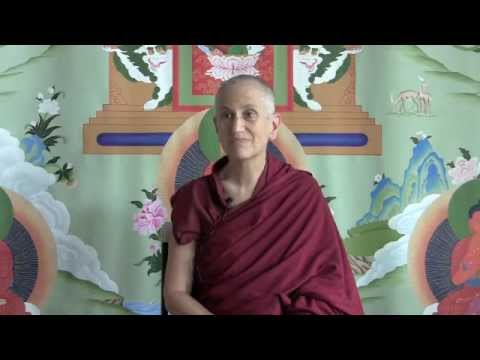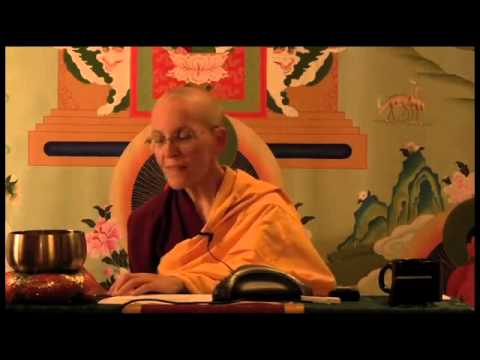How do we make ourselves trustworthy?
How do we make ourselves trustworthy?
Part of a series of short Bodhisattva’s Breakfast Corner talks on the topic of trust.
- Abandoning the 10 non-virtues
- Looking at our own experience
How do we make ourselves trustworthy? (download)
We’ve been talking about trust—different ways it manifests and what to do when trust is broken—but how about talking about how we can make ourselves trustworthy? We talk a lot about how when others break our trust, or maybe when we break others’ trust, but how about the preventative measure of making ourselves trustworthy?
I remember many years ago, I was leading a discussion group in one of the polytechnics in Singapore on friendship. I was asking the kids—they were all like, 17 to 21—and asking them, what are the criteria for friends? On what basis do you make friends? So they began to talk about things—somebody who’s kind, somebody who doesn’t tell my secrets, somebody who doesn’t lie to me. It was very interesting because—they all went around in a circle and talked about this—and at the end it was very clear that what were the criteria for friends were abandoning the 10 non-virtues. Nobody wanted to have friends who took their stuff, or cheated on them, or lied to them, or talked behind their back, or screamed at them, or ridiculed them, or whatever it was.
The same thing, too, when we say, “How can we make ourselves trustworthy?” I think one of the big ways is abandoning the 10 non-virtues. If we look in situations why discord happens between human beings, and what the source of broken trust is, it usually boils down to one of the 10 non-virtues. Somebody harmed me physically, or harmed somebody I love physically, I don’t trust them anymore. They stole my stuff, or they embezzled my things, or they did some dirty financial deal on me, or took more than their share of something, so I don’t trust them. Infidelity in marriage—sleeping around or whatever—don’t trust them. Lying—for me, that’s the big trust-breaker. The other things I can handle in one way or another, but when somebody lies to me, that’s just like, finished. Harsh words—that’s a real big trust-breaker, isn’t it, especially in an office? You’re trying to work together harmoniously, then people start gossiping—you don’t trust that person anymore. Harsh words—making fun of people, ridiculing them, criticizing them, embarrassing them. Idle talk. Then the three mental ones—if you have a friend who you know is eying your stuff, even though they haven’t taken anything, who’s coveting your stuff and envious of you—doesn’t feel comfortable. Or somebody who has ill will, or somebody who’s spouting off all sorts of incredible wrong views and critical views.
If we look in our own life, and ask ourselves what are the things that break trust, we can come up with these 10. If we want to make ourselves into trustworthy people, instead of always looking to see how other people are doing and if they’re worthy of our trust, try and think, “How can I be trustworthy to somebody else?” Then if we abandon the 10 non-virtues and practice the 10 virtues, that’s a real good start. In fact, I would say almost anything that you can think of that would break trust falls into the 10 non-virtues. If you practice the 10 virtues and abandon the 10 non-virtues, then you make yourself into a trustworthy person.
Now whether other people from their side trust you, you don’t have any control over. People perceive us however they perceive us through the filter of their own karma, and their own self-centeredness, and everything like that. We can’t make anybody trust us from their side—we can’t control their minds-but from our side we can make ourselves trustworthy so that the people who come around us feel like they don’t have anything to be afraid of or suspicious of because we will be honest, straightforward, truthful and kind.
This whole discussion of trust—if our mind sometimes goes off on this thing, “Oh, I can’t trust anybody, how am I going to trust anyone? The whole world’s untrustworthy!” Instead of letting your mind spin out about that, which is useless, come back to, “How can I be trustworthy?” I can’t make the rest of the world trustworthy. I have to make myself trustworthy. If I make myself a person who’s trustworthy, I’m going to attract a lot more people who are also trustworthy. That’s our homework, isn’t it? Instead of falling into so much doubt about other people—who can I trust and the world’s falling to bits and everything—it’s like, well, what can I do, to remedy the problem? Remedying the problem has to start with this one right here.
Then of course, if we become more trustworthy, we inspire other people to become like that, without even trying. We don’t have to try and be a good example, we don’t have to try and be anything, but just the way we are. People can see that we’re trustworthy, and then that inspires them to make themselves trustworthy.
I’m going to be gone for two months—so I hope you’re all trustworthy. Not worthy of my trust, but worthy of each others’ trust. If you all act in a way that makes yourselves trustworthy, then the community’s going to be really harmonious, and quite wonderful.
Anybody have comments or questions?
[In response to audience] I think you can bear my trust. I’m not an easy pushover. I think you can bear my trust—and I think people will slip and slide, and that’s normal, so you pick yourself up, and you go on. You apologize, and the other person forgives, and life goes on.
Venerable Thubten Chodron
Venerable Chodron emphasizes the practical application of Buddha’s teachings in our daily lives and is especially skilled at explaining them in ways easily understood and practiced by Westerners. She is well known for her warm, humorous, and lucid teachings. She was ordained as a Buddhist nun in 1977 by Kyabje Ling Rinpoche in Dharamsala, India, and in 1986 she received bhikshuni (full) ordination in Taiwan. Read her full bio.


